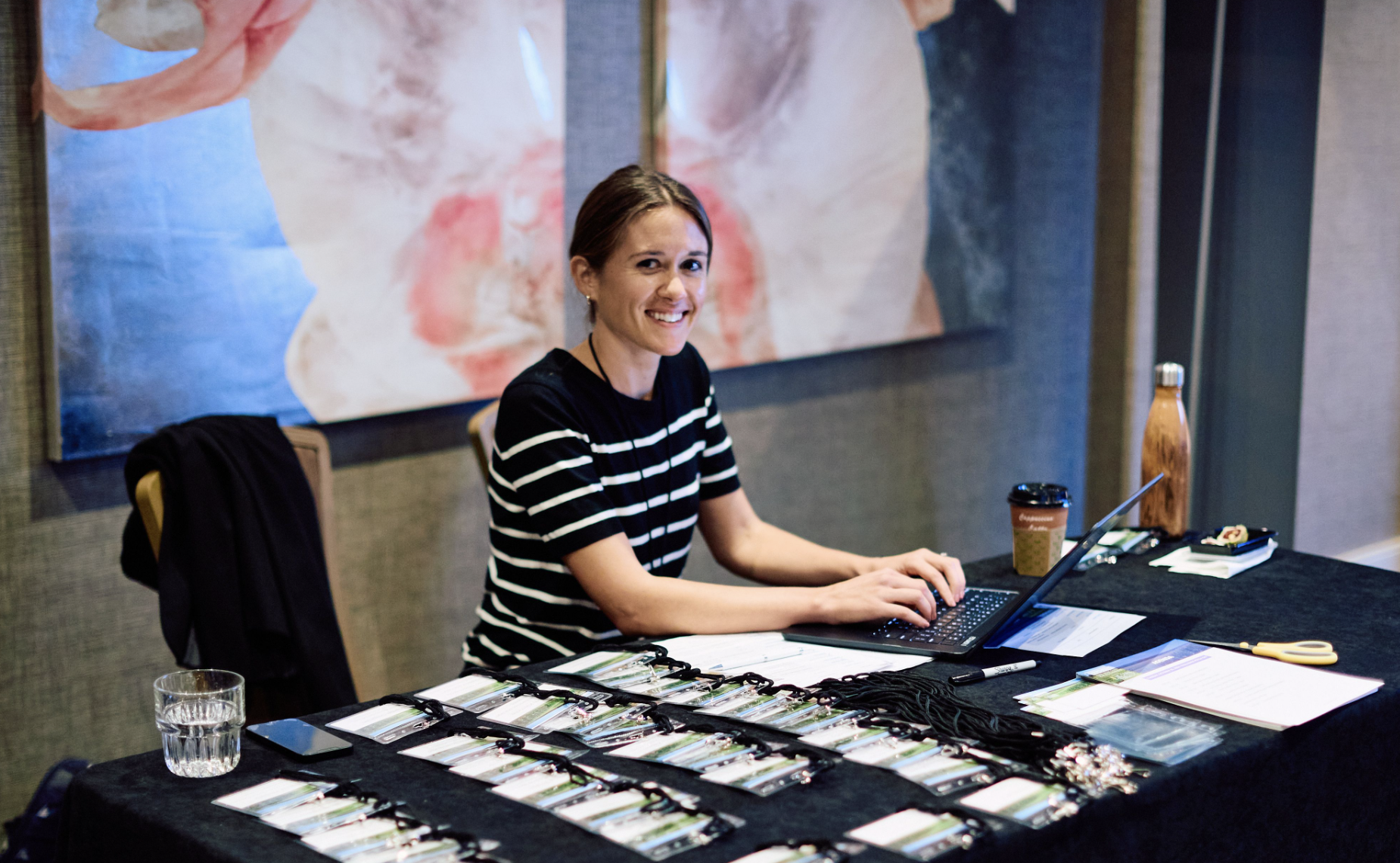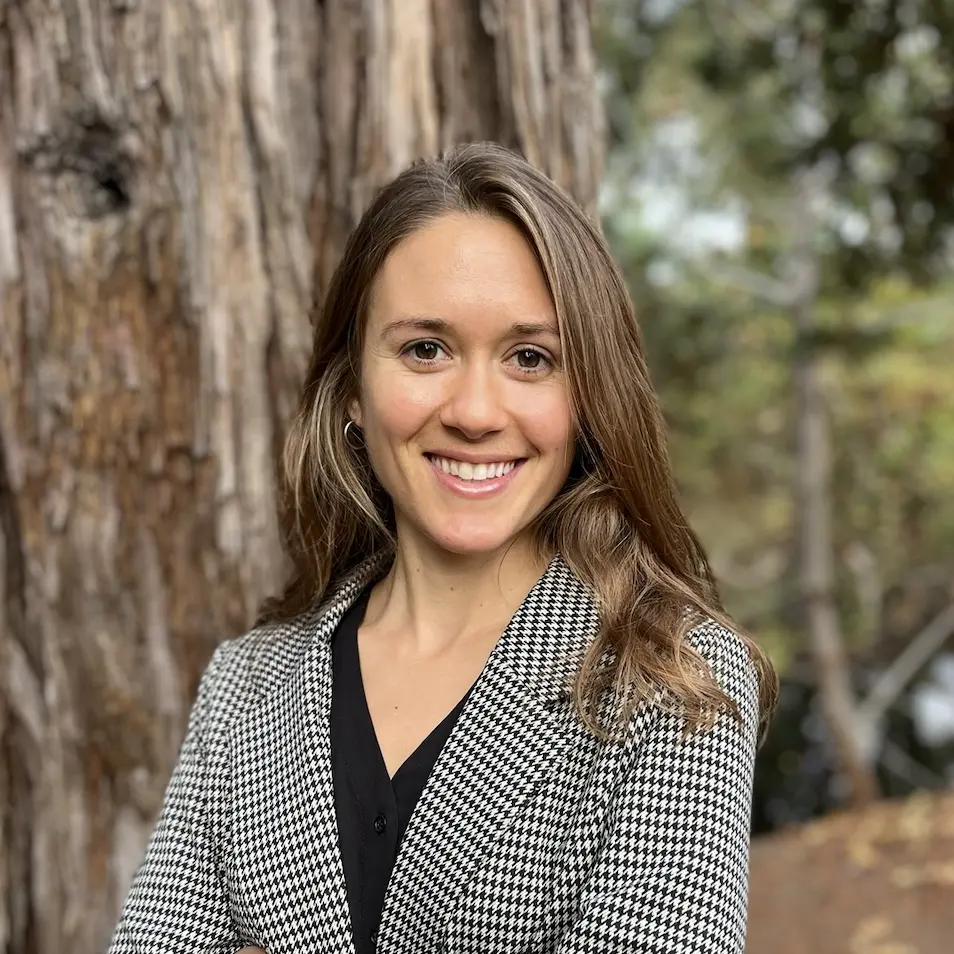
In addition to the outstanding research environment, one of the primary reasons I chose UC Davis for my second postdoctoral position was the opportunity to engage with the Innovation Institute for Food and Health (IIFH) and it’s programs, particularly the Innovator Fellowship. As someone with a long-standing entrepreneurial curiosity- cultivated through founding initiatives like the Egg-Vengers and my avid consumption of podcasts like How I Built This– I have sought an opportunity to connect my scientific pursuits with entrepreneurship. However, I lacked the framework to understand how to translate my research into impactful, market-ready solutions. For the past ten years, my research efforts have always ended with a publication, leaving me to wonder: what distinguishes a promising scientific idea from a viable business opportunity?
Through the Innovator Fellowship, I aimed to address this question while immersing myself in the entrepreneurial ecosystem, building a network of innovators, and gaining firsthand experience in venture capital. As part of the fellowship’s 16th cohort, my primary goal was to understand the evaluative criteria venture capital (VC) firms use to assess the hundreds of startups vying for investment each year. I wanted to step into the shoes of an investor, critically analyze entrepreneurial ventures, and gain insight into the strategic decision-making process of identifying transformative opportunities. My secondary goal was to expand my professional network beyond academia, particularly within the food and agriculture industries, to forge meaningful connections with startup founders, investors, and thought leaders shaping these fields.
From February to October 2024, I was privileged to work with Radicle Growth, an early-stage VC firm dedicated to revolutionizing the food system by building and funding innovative Agri-Tech and Food-Tech startups. At Radicle, I contributed to the Corn Value Chain (CVC) Challenge, a $1.5M initiative designed to uncover novel, sustainable applications for corn. My core responsibilities included developing the investment thesis, conducting due diligence on startup applicants, and supporting the Radicle Challenge CVC event, where finalists pitched their ideas to a panel of judges. Under the mentorship of Neal Gutterson, Radicle’s Chief Technology Officer, I authored a comprehensive investment thesis—a 130-slide PowerPoint deck synthesizing the current uses of corn, the structure and dynamics of the corn value chain, emerging technologies, market demand, regulatory risks, and investment opportunities. This thesis was informed by a rigorous review of technical and economic reports, as well as interviews with 20 industry experts across the corn value chain.
Over 130 startups from around the world applied to the CVC Challenge. During the technical due diligence process, I helped to narrow the pool of applicants to four finalists who presented their pitches at the CVC event in October 2024. This process gave me firsthand exposure to the inner workings of venture capital, from evaluating a startup’s technology, market fit, and scalability to assessing its team and potential competitive advantages. The experience also deepened my appreciation for the complexities of building a business and provided a nuanced understanding of what distinguishes a promising idea from a transformative investment opportunity.
The fellowship also afforded me the opportunity to attend eight Agri-Tech and Food-Tech conferences, two of which were international. These events allowed me to broaden my understanding of the challenges facing global food and agriculture systems while observing how startups and investors collaborate to address these pressing issues. Interacting with entrepreneurs and industry leaders at these conferences provided invaluable insights into the innovative solutions being developed to tackle food security, climate change, and human health.
Throughout the nine-month fellowship, my interactions with the Radicle team, the broader food and agriculture community, and the IIFH community at UC Davis confirmed my passion for merging scientific research with entrepreneurship. The experience has fundamentally transformed the way I think about my career and my role as a scientist. By crafting the investment thesis and participating in the due diligence process, I learned to approach scientific and technical problems from multiple perspectives—scientific, technical, market, and regulatory. I developed the ability to “pop the hood” on startups and evaluate the mechanisms that drive their success or failure. Sitting in on calls with founders further honed my understanding of the types of questions VCs ask and the criteria they prioritize when deciding whether to invest.
Returning to full-time research in the Department of Food Science and Technology at UC Davis, I bring a renewed perspective on the intersection of science and entrepreneurship. My experience as an Innovator Fellow has provided me with a set of critical questions that now guide my approach to research translation. For instance, I now ask: What is the market need or problem my research seeks to address? Who is the target customer, and is the product solving a need or merely a want? How does the technology align with the market, and what is the competitive landscape? What is the delivery mechanism for the product—ingredient, supplement, or something else? How can we ensure cost-effectiveness while maintaining impact? What intellectual property (IP) protections or competitive advantages does the product have? Finally, what infrastructure and resources are required to build a business around this technology?
These questions have become especially relevant as I explore the potential commercialization of my own research, which focuses on a food-derived product to prevent cognitive impairment in aging populations. The fellowship has provided me with the entrepreneurial framework to evaluate the translational potential of this project and the tools to navigate the complex path from scientific discovery to marketable innovation.
Moreover, the fellowship underscored the importance of networking and collaboration. The relationships I built within the IIFH community, Radicle Growth, and the broader food and agriculture sectors have enriched my understanding of the entrepreneurial landscape and opened doors to potential partnerships and mentorship opportunities. These connections have reinforced my belief in the value of interdisciplinary collaboration and the critical role of communication in bridging the gap between science and industry.
Reflecting on my time as an Innovator Fellow, I am immensely grateful for the opportunities I had to gain practical experience in venture capital, deepen my understanding of entrepreneurial science, and expand my professional network. The fellowship has not only enhanced my technical and analytical skill set but also solidified my commitment to pursuing a career that integrates scientific innovation with entrepreneurial impact. My ultimate goal is to develop novel nutritional therapeutics that improve human health and well-being across the lifespan and to contribute meaningfully to the translation of academic research into real-world solutions. The IIFH Innovator Fellowship has been a pivotal step toward achieving this vision, and I am excited to apply what I have learned to my future endeavors as both a scientist and an innovator.
